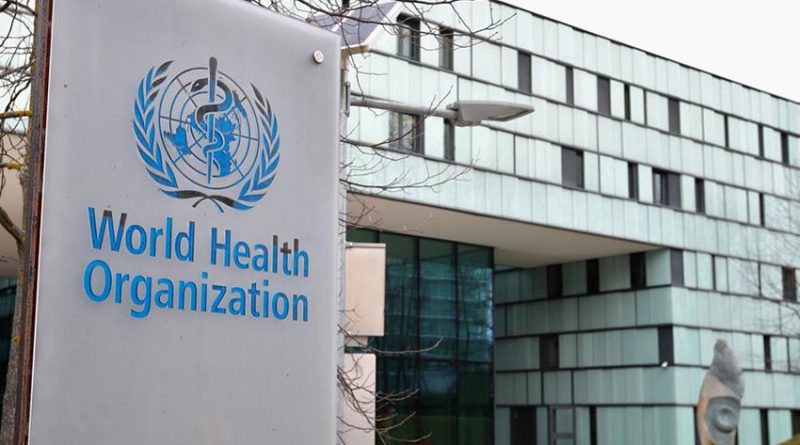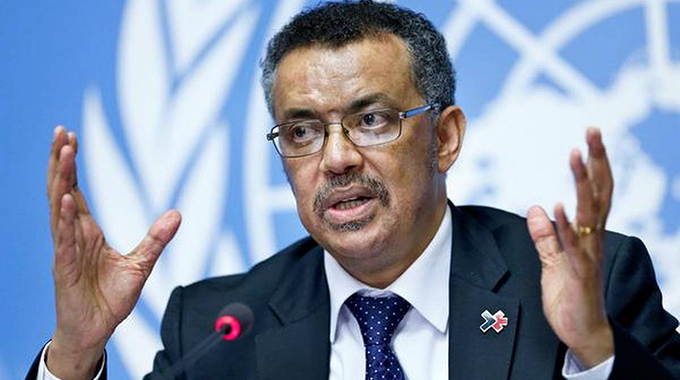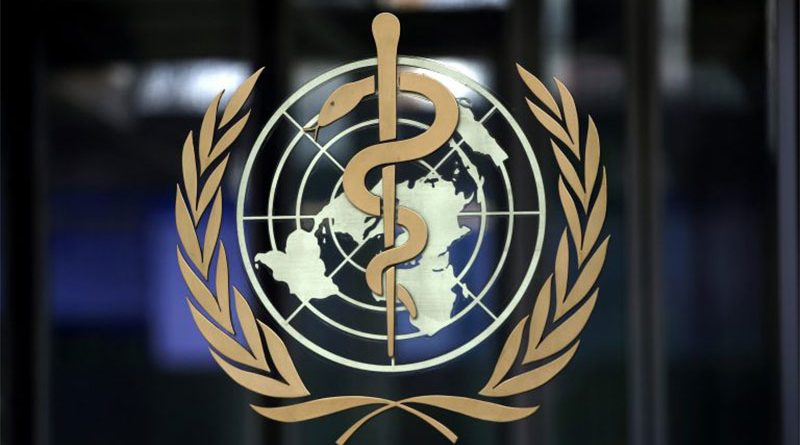The World Health Organization said new Covid-19 cases in South Africa more than doubled over the last week amid the spread of the omicron variant, the dominant strain circulating in the country.
During the week of Nov. 29 to Dec. 5, South Africa’s cases increased by 111% from the previous week, the WHO noted in a report released Wednesday. Roughly 62,000 new cases were reported in the country during the last week alone.
The percentage of positive Covid tests are also soaring with almost a quarter, 22.4%, of tests coming back positive at the beginning of last week, a significant increase from the 1.2% positivity rate reported during the first week of November, the WHO added in the report.
But the exact cause of these increases is still unclear, WHO said. The agency said it is “plausible” that it was driven by the spread of omicron in combination with scaled back public health protocols and “sub-optimal” Covid vaccination coverage in the country. To date, 25.2% of the total population in South Africa is fully vaccinated, according to the WHO.
The data comes as the omicron variant spreads across the world with confirmed cases in 57 countries. South Africa and Botswana, which both detected the variant early on last month, account for 62% of omicron cases reported as of Dec. 2, a separate WHO report released Wednesday said.
Meanwhile, scientists across the world are scrambling to answer questions about the new variant’s transmissibility and severity.
Omicron has more than 30 mutations to the spike protein, which the virus uses to invade human cells. Some mutations affect the variant’s virulence and indicate it could be more infectious than previous Covid strains, according to the WHO.
On Wednesday, WHO Covid-19 technical lead Maria Van Kerkhove said preliminary evidence from South Africa may suggest the new variant is milder than the delta strain of Covid-19 but it is “too early to conclude on that.”
South African patients with a more mild course of the disease may not have gone through the full course of the infection, she said. Van Kerkhove also noted the evidence is largely based on anecdotal information rather than comprehensive studies.
“It’s too early to tell,” Van Kerkhove said during the briefing. “I just only wanted to caution against any conclusions about the severity of omicron yet.”
But she said that vulnerable populations, such as individuals who are older, unvaccinated or have underlying conditions, have a considerably higher risk of developing severe disease.
Questions about the new variant’s affect on vaccine efficacy remain unanswered as well, though new evidence emerged from a preliminary study released Tuesday by South African scientists.
The study found the variant significantly reduces antibody protection generated by Pfizer and BioNTech’s vaccine. However, the South African scientists noted the patients who recovered from the virus and received a booster shot will likely have more protection from severe disease.
At the Wednesday briefing, WHO Chief Scientist Soumya Swaminathan said it is still premature to conclude this “reduction neutralizing activity would result in a significant reduction” in vaccine efficacy.
“We do not know that because as you know, the immune system is much more complex,” Swaminathan said. “There are T cells, there are memory B cells, and so what we really need now is a coordinated research effort and not jumping to conclusions on you know, study by study.”
Source - CNBC
TEDROS Adhanom Ghebreyesus, who has steered the global response to the COVID-19 pandemic, is on course to serve a second five-year term as head of the World Health Organization (WHO) after being the only candidate nominated by 28 countries.
Tedros, former health and foreign minister of Ethiopia, was the first African elected WHO director-general in May 2017.
The clean slate for the May election comes even as the European Commission suspending funding to WHO programmes in the Democratic Republic of Congo over a major sexual abuse scandal, as reported exclusively by Reuters on Thursday.
Some 83 aid workers, a quarter of them employed by the WHO, were involved in sexual exploitation and abuse during Congo’s 2018-2020 Ebola epidemic, an independent probe said last month.
Health ministers from the WHO’s 194 member states are also due to hold an exceptional assembly in November amid mounting pressure for reform pursuant to the organisation’s handling of the pandemic.
Tedros drew support from France and Germany, among other European Union members, and three African countries – Botswana, Kenya and Rwanda – the official nomination list showed. Britain, China, Russia and the United States were not among them.
“WHO can announce that a single candidate was proposed by member states by the 23 September 2021 deadline: Dr Tedros Adhanom Ghebreyesus, who is the incumbent director-general,” the agency said in a statement. The nominations were kept secret to limit lengthy campaigning.
Earlier, the agency sent a letter to member states informing them of the confidential nominations contained in the sealed envelopes submitted by the deadline
Ethiopia declined to nominate Tedros for a second term due to friction over the conflict in the Tigray region of northern Ethiopia, making it necessary for other countries to step in and do so.
The issue is so sensitive that the African Union has not even discussed the appointment, including at its latest summit this month, African diplomats said.
Tedros has led the global response to COVID-19, the worst public health crisis in a century, which broke out in the central Chinese city of Wuhan in late 2019 and has killed 5.2 million people.
The United States, under former President Donald Trump, accused him of being “China-centric”, a charge he denies. Relations have warmed since Joe Biden’s administration took office in January.
But he annoyed China with public calls in July for it to share Wuhan lab audits and provide more data on early COVID-19 cases. WHO investigators have yet to regain access to the country to probe the origins of coronavirus.
“STAYING POWER”
The United States and Germany have led major donors in demanding fundamental reforms to the WHO’s structure, financing and capacity to deal with outbreaks.
The European Commission informed the WHO on Oct. 7 that it was immediately suspending funding to its Congo programmes due to concerns over its handling of the sexual abuse scandal. Tedros went to Congo 14 times during the epidemic but says that he was unaware of the allegations.
“We have received the (EU) letter and we are now considering a response,” WHO spokesperson Margaret Harris told a briefing on Friday.
A European source asked whether the Congo scandal could have an impact on Tedros’ re-election, said: “Nope. He personally is taking the right steps and measures. As long as there is not a direct link to him. Which I don’t see.”
An African ambassador in Geneva, declining to be identified, said: “Dr Tedros has done a very good job dealing with a severe pandemic with severe repercussions. He has tried to contribute within the capacity and the resources of WHO and to realize a more equitable distribution of vaccines at the global level.”
“He is a friend of Africa, he has done a lot of work and deserves a lot of support,” the ambassador said.
Norwegian Prime Minister Jonas Gahr Stoere, speaking at a news briefing with Tedros on Thursday, where the WHO launched a $23.4 billion plan to bring COVID-19 vaccines and drugs to poorer countries, told him:
“I wish you all luck in your endeavour and I salute your staying power and your ability to keep focus on this agenda, servicing your broad membership and the whole world.”
THE World Health Organization (WHO) and other aid groups on Thursday appealed to leaders of the world’s 20 biggest economies to fund a $23.4 billion plan to bring COVID-19 vaccines, tests and drugs to poorer countries in the next 12 months.
WHO Director-General Tedros Adhanom Ghebreyesus said the Group of 20, whose leaders are meeting in Rome at the weekend, had the political and financial power needed to end the pandemic by funding the plan, which he said could save five million lives.
The latest update of the so-called Access to COVID-19 Tools Accelerator (ACT-A), until September 2022, is expected to include the use of an experimental oral antiviral pill made by Merck & Co for treating mild and moderate cases.
If the pill is approved by regulatory authorities, the cost could be as little as $10 per course, the plan said, in line with a draft document seen by Reuters earlier this month.
“The request is for $23.4 billion. That’s a fair amount of money, but if you compare with the damage also done to global economy by the pandemic it is not really that much,” Carl Bildt, WHO Special Envoy to the ACT-Accelerator, told reporters earlier.
Bildt, a former Swedish prime minister, acknowledged that the ACT-A has struggled to secure previous financing.
“I hope and urge that the G20 will make a commitment to end the pandemic,” Norwegian Prime Minister Jonas Gahr Stoere, whose country co-chairs the fund-raising effort, told the media briefing.
Equal budgets of $7 billion are earmarked for both vaccines and diagnostic tests, with a further $5.9 billion for boosting health systems and $3.5 billion for treatments including antivirals, corticosteroids, and medical oxygen.
Tedros noted at the briefing that global cases were rising for the first time in two months, driven by Europe.
BOOSTER VACCINES
COVAX, the vaccines arm of the ACT-A, has delivered some 400 million COVID-19 doses to more than 140 low- and middle-income countries, where vaccination rates remain low, WHO chief scientist Soumya Swaminathan said.
About 82 countries are likely to miss a WHO global target of 40% vaccination coverage by year-end, but some of them could if supplies start flowing, she said.
“One of the things that is now interfering in a big way is the need for boosters, more and more high income countries are going in for the booster doses and this is now sucking up the vaccine doses as well,” Swaminathan added.
Nearly a million booster jabs are being given each day, “three times the amount of vaccines being administered in low-income countries,” she said.
Referring to India, which resumed “relatively modest” COVID-19 vaccine exports this month after suspending them in April due to its domestic epidemic, Swaminathan said: “I think these volumes coming out of India will go up significantly.”
MERCK DRUG
The U.S. Food and Drug Administration is considering emergency use authorization of molnupiravir, the antiviral pill Merck has developed with Ridgeback Biotherapeutics. It was shown in a clinical trial to halve the risk of serious disease and death when given early for COVID-19.
“This is a drug that we are currently evaluating and we met with Merck on Friday to discuss data from their current clinical trials that are under way in other countries,” said Maria van Kerkhove, the WHO’s technical lead on COVID, adding the agency hoped to issue guidance on its use in coming weeks.




